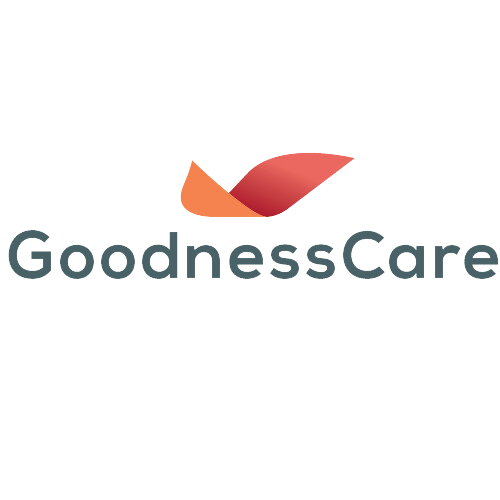Medical sales representatives, including those involved in the distribution of healthcare products like the ones offered by Goodness Care, often encounter various challenges in their roles. Some common pain points for medical sales reps include:
1. Regulatory Compliance
Navigating complex and evolving regulations in the healthcare industry can be challenging. Keeping up with changes in compliance requirements and ensuring that products meet all necessary standards can be time-consuming.
- Stringent Documentation Requirements: The healthcare industry is characterized by rigorous documentation standards. Medical sales reps often need to ensure that all product documentation, including clinical trials, safety data, and regulatory filings, are accurate, up-to-date, and readily accessible to regulatory authorities.
- Global Variability in Regulations: Exporting products to different countries, as in the case of Goodness Care, introduces an added layer of complexity. Each country may have its own regulatory requirements, necessitating meticulous attention to detail to ensure that products comply with the specific standards of each target market.
- Continuous Training and Education: Staying compliant requires continuous education and training for sales representatives. This includes keeping the team updated on changes in regulations, industry best practices, and any new requirements imposed by health authorities. This ongoing education is essential for maintaining high competence and adaptability.
- Adapting to Evolving Standards: The healthcare industry is dynamic, and regulatory standards are subject to change. Medical sales reps must stay informed about existing regulations and be prepared to adapt quickly to new standards or amendments. This adaptability is crucial to ensuring that products remain compliant throughout their lifecycle.
- Risk of Non-Compliance: Non-compliance with healthcare regulations can have severe consequences, ranging from financial penalties to reputational damage. Medical sales representatives must actively manage non-compliance risk by implementing robust compliance management systems, conducting regular audits, and promptly addressing identified issues.
- Collaboration with Regulatory Bodies: Building and maintaining positive relationships with regulatory bodies is key. Establishing open lines of communication can help streamline the compliance process and facilitate a smoother approval process for new products or changes to existing ones.
2. Product Knowledge
Selling medical products requires an in-depth understanding of the product’s features, benefits, and applications. Keeping up with the latest research and developments in the field can be demanding.
- Clinical Understanding: Medical sales representatives need a deep clinical understanding of the products they are selling. This includes knowing the technical specifications and understanding how the product addresses specific medical conditions and contributes to patient care. This knowledge is crucial for effective communication with healthcare professionals.
- Continuous Training on Product Portfolio: Medical products often have intricate features and diverse applications. Sales reps must undergo ongoing training to stay informed about the product portfolio. This involves understanding the nuances of each product, its compatibility with different medical procedures, and its potential benefits for patients.
- Keeping Pace with Technological Advances: The healthcare industry is rapidly evolving, with new technologies and innovations regularly entering the market. Sales representatives must stay abreast of these advancements to effectively position their products against the latest alternatives and communicate how they offer unique advantages.
- Educating Healthcare Professionals: In addition to understanding the products, medical sales reps play a crucial role in educating healthcare professionals. This involves translating complex medical information into accessible language, conducting training sessions, and providing resources that help professionals integrate the products into their practices.
- Interdisciplinary Knowledge: Some medical products may have applications across different medical specialties. Sales representatives need to possess interdisciplinary knowledge to effectively engage with professionals from various fields and tailor their communication to address each specialty’s specific needs and concerns.
- Navigating Research Literature: Staying informed about the latest research studies and publications is essential. Medical sales reps need to be able to interpret and communicate relevant findings to build a compelling case for the efficacy of their products. This requires the ability to analyze scientific literature and present evidence-based arguments critically.
- Addressing Customer Inquiries: Sales reps often encounter detailed inquiries from healthcare professionals. They must be prepared to respond with accurate and comprehensive information, instilling confidence in the product’s capabilities and benefits.
3. Relationship Building
Building strong relationships with healthcare professionals, pharmaceutical distributors, and other stakeholders is crucial. However, it can be challenging to establish trust and maintain positive connections in a competitive market.
- Understanding Diverse Stakeholders: Medical sales reps often interact with a diverse range of stakeholders, including healthcare professionals, purchasing managers, administrators, and pharma distributors. Building relationships requires an understanding of the unique needs, challenges, and decision-making processes of each stakeholder group.
- Long Sales Cycles and Relationship Development: Decisions often involve multiple stakeholders in the healthcare industry, and the sales cycle can be protracted. Establishing and maintaining relationships over an extended period is crucial. This requires patience, persistence, and a strategic approach to nurturing connections throughout decision-making.
- Personalized Communication: Tailoring communication to individual preferences is essential. Some healthcare professionals may prefer detailed technical information, while others may prioritize the potential impact on patient outcomes. Sales reps must adapt communication styles to resonate with each stakeholder’s preferences and priorities.
- Building Trust Through Transparency: Trust is a cornerstone of successful relationships in the medical sales industry. Sales representatives must prioritize transparency in their interactions, providing accurate information about products, pricing, and capabilities. Consistent and honest communication fosters trust and credibility.
- Post-Sale Relationship Management: Relationship building doesn’t end with a sale. Medical sales reps should focus on post-sale relationship management, ensuring that customers receive ongoing support, training, and updates. This commitment to customer success contributes to long-term satisfaction and potential future collaborations.
- Networking and Industry Events: Attending industry conferences, seminars, and networking events is a key relationship-building strategy. Sales reps can use these opportunities to connect with key stakeholders, stay informed about industry trends, and showcase the value of their products in person.
- Navigating Competitive Dynamics: In a competitive market, differentiation is vital. Sales reps must articulate the unique value propositions of their products and emphasize how they address specific pain points or challenges faced by healthcare professionals and medical distributors. This strategic positioning helps build a compelling case for collaboration.
- Cultural Sensitivity: Understanding and respecting cultural nuances is crucial for effective relationship building for international markets like Goodness Care. This includes recognizing each target market’s communication styles, business practices, and expectations.
4. Market Competition
The healthcare industry is often highly competitive, and medical sales reps may face challenges in differentiating their products from competitors. This requires effective marketing and communication strategies.
- Competitive Landscape Analysis: Sales reps need to conduct thorough analyses of the competitive landscape. This involves understanding not only direct competitors but also potential alternatives or substitutes. Knowing the strengths and weaknesses of each competitor helps in developing targeted strategies for differentiation.
- Value Proposition Development: Establishing a compelling and unique value proposition is crucial for standing out in a crowded market. Medical sales reps must articulate how their products offer distinct advantages, whether it’s in terms of efficacy, cost-effectiveness, ease of use, or other relevant factors that resonate with customers.
- Customer Education on Differentiators: Effectively communicating the differentiating factors of products to customers is a continuous challenge. Sales reps must be adept at translating technical details into clear, persuasive messages highlighting why their products outshine competitors. This involves creating educational materials and presentations that emphasize key differentiators.
- Adaptation to Emerging Trends: The healthcare industry is dynamic, with trends and preferences constantly evolving. Sales representatives must be agile in adapting to these changes and positioning their products to align with emerging market trends. This requires ongoing market research and a proactive approach to innovation.
- Strategic Pricing: Developing a pricing strategy that reflects the product’s value while remaining competitive is a delicate balance. Sales reps need to justify the pricing of their products based on factors such as quality, features, and outcomes, ensuring that customers perceive the value they are receiving.
- Building Brand Loyalty: Beyond the product itself, building brand loyalty is a key strategy for long-term success. Sales reps should convey the company’s values, commitment to quality, and dedication to customer satisfaction. Positive customer experiences and testimonials can contribute to building a solid and loyal customer base.
- Utilizing Digital Marketing Channels: In the age of digital communication, leveraging online platforms for marketing and communication is essential. Sales reps should be adept at using social media, content marketing, and other digital channels to reach and engage with their target audience effectively.
- Feedback Integration: Actively seeking and incorporating customer feedback is a valuable strategy for improvement. Sales reps should view customer input as an opportunity to refine products, enhance customer experiences, and stay ahead of competitors by addressing evolving needs.
5. Access to Decision-Makers
Accessing key decision-makers in hospitals, clinics, and other healthcare institutions can be difficult. Developing strategies to connect with and influence these individuals is a common pain point.
- Understanding Decision-Making Hierarchies: Healthcare institutions often have complex decision-making structures with multiple layers of authority. Sales reps need to navigate these hierarchies to identify and connect with the key decision-makers who can influence product adoption. This requires careful research and relationship-building at various levels within the organization.
- Persistence and Follow-Up: Gaining access to decision-makers may require persistence and strategic follow-up. Decision-makers are often busy individuals with demanding schedules. Effective sales reps employ a persistent yet respectful approach, ensuring their communications stand out without intruding.
- Customized Value Propositions: Decision-makers are primarily concerned with solutions addressing their needs and challenges. Sales reps must tailor their value propositions to align with the priorities and objectives of the decision-makers. This involves conducting in-depth research to understand the unique pain points of each healthcare institution.
- Building Referral Networks: Developing relationships with healthcare influencers can facilitate decision-maker access. This includes networking with key opinion leaders, thought influencers, and professionals who sway decision-making. Positive referrals from trusted sources can significantly enhance a sales rep’s credibility.
- Utilizing Professional Associations: Many decision-makers in healthcare institutions are active members of professional associations and networks. Sales reps can leverage these platforms to connect with decision-makers, attend industry events, and participate in discussions relevant to their products. This provides opportunities for face-to-face interactions and relationship-building.
- Providing Educational Resources: Decision-makers appreciate suppliers who contribute to their knowledge base. Sales reps can offer educational resources, such as whitepapers, case studies, and webinars, that demonstrate the value and effectiveness of their products. This positions the sales rep as a valuable partner in the decision-making process.
- Demonstrating Return on Investment (ROI): Decision-makers often require assurances that investing in a particular product will yield a positive return on investment. Sales reps should be equipped to present compelling data and case studies demonstrating their products’ financial and clinical benefits.
- Strategic Timing: Understanding decision-making cycles within healthcare institutions is crucial. Sales reps must align their outreach efforts with the periods when institutions actively evaluate and make purchasing decisions. This requires ongoing market intelligence and a keen awareness of industry trends.
6. Long Sales Cycles
Medical sales often involve long sales cycles, as decisions may need to go through various levels of approval. This can result in delays and uncertainties in closing deals.
- Multiple Approval Levels: Healthcare institutions typically have complex decision-making structures involving multiple levels of approval. Sales reps may need to navigate through various departments, committees, and stakeholders, each with its own considerations and requirements. Understanding and managing this intricate process is crucial for minimizing delays.
- Clinical Evaluation Processes: Many medical products undergo rigorous clinical evaluation processes before gaining approval. Sales reps must work closely with healthcare professionals, providing necessary documentation, facilitating product demonstrations, and addressing any concerns raised during the evaluation. This collaboration is essential for building confidence and expediting the approval process.
- Budgetary Considerations: Budget approval is a significant milestone in the sales cycle. Sales reps must be prepared to address questions about their products’ cost-effectiveness and long-term value. Developing a clear and persuasive argument for the financial benefits of the product is essential for moving the sales cycle forward.
- Educational Initiatives: Long sales cycles often allow sales reps to engage in educational initiatives. This may involve conducting workshops, training sessions, or providing additional resources to support decision-makers in understanding the product’s benefits and implementation. These educational efforts can contribute to building trust and expediting the decision-making process.
- Building Relationships During Delays: Successful sales reps use this time to strengthen relationships with key stakeholders rather than viewing delays as obstacles. Regular communication, updates on product advancements, and proactive engagement contribute to maintaining interest and support, even during extended decision-making periods.
- Effective Project Management: Managing the sales process as a project is essential for minimizing delays. This involves setting clear timelines, milestones, and expectations with the client. Proactive project management helps predict potential roadblocks and showcases the sales rep’s commitment to a smooth and efficient process.
- Understanding Regulatory Requirements: Delays are often attributed to regulatory processes and compliance requirements. Sales reps must comprehensively understand these regulations and work collaboratively with regulatory affairs teams to ensure that all necessary documentation and approvals are obtained on time.
- Leveraging Technology: Utilizing technology to streamline the sales process can significantly reduce delays. This includes implementing customer relationship management (CRM) systems, automation tools, and digital communication platforms to enhance efficiency, track progress, and ensure that all stakeholders are informed throughout the sales cycle.
7. Technological Integration
Incorporating and understanding new technologies, especially in the context of digital marketing and sales tools, is essential for staying competitive. Adapting to technological advancements can be a challenge for some sales reps.
- Digital Marketing Platforms: Staying competitive in the healthcare industry requires a strong presence on digital platforms. Sales reps must navigate various digital marketing tools such as social media, content management systems, and email marketing to reach and engage with their target audience effectively. This involves creating compelling content, optimizing for search engines, and utilizing analytics to measure campaign effectiveness.
- Customer Relationship Management (CRM) Systems: Implementing and effectively using CRM systems is crucial for managing customer interactions, tracking leads, and streamlining communication. Sales reps must proficiently utilize CRM functionalities to enhance customer relationships, track sales activities, and gather valuable insights for informed decision-making.
- E-commerce Platforms: With the growth of online purchasing, understanding and leveraging e-commerce platforms is essential. Sales reps must be familiar with the company’s online sales platform, ensuring a seamless customer experience from product selection to checkout. This includes optimizing product listings, managing inventory, and addressing customer inquiries online.
- Data Analytics and Business Intelligence: Harnessing the power of data is vital for making informed business decisions. Sales reps need to understand data analytics tools to interpret customer behaviors, track sales trends, and identify areas for improvement. This data-driven approach enables more targeted and effective sales strategies.
- Remote Collaboration Tools: In an era of global markets and remote work, sales reps must use collaboration tools. Video conferencing, project management platforms, and virtual communication tools facilitate seamless interactions with colleagues, clients, and stakeholders across geographical locations.
- Mobile Technologies: Mobile technologies play a significant role in the sales process. Sales reps should be familiar with mobile apps, responsive design principles, and other technologies that enable them to access information, communicate with clients, and manage sales activities on the go.
- Cybersecurity Awareness: With the increasing reliance on digital tools, cybersecurity is a critical consideration. Sales reps should be trained to recognize potential cybersecurity threats, safeguard sensitive customer information, and adhere to best practices for data protection.
- Adaptation to Emerging Technologies: The technological landscape is constantly evolving. Sales reps need to stay informed about emerging technologies such as artificial intelligence, virtual reality, and augmented reality that may impact the healthcare industry. Proactively adapting to these technologies can provide a competitive edge.
- Training and Continuous Learning: Given the rapid pace of technological advancements, ongoing training is essential. Companies should invest in continuous learning programs to ensure that sales reps remain current with the latest technologies and best practices in digital marketing and sales.





